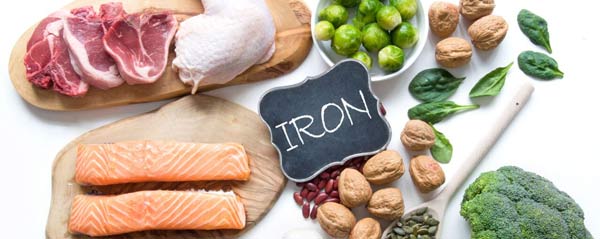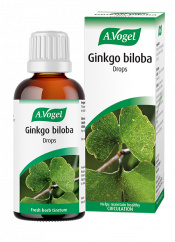1. Iron
Iron deficiency (also known as anaemia) can cause fatigue, pale skin, shortness of breath as well as cold hands and feet. Iron is an important component of haemoglobin that is responsible for carrying oxygen from the lungs to the rest of the body. If we don’t have a sufficient iron content then our body is unable to produce enough healthy oxygen-carrying blood cells, which means that the extremities of the body (hands and feet) often get neglected. It also means that we will become fatigued because we don’t have oxygen to provide our muscles with energy.
Where can I find it?
- Red meat (2.1 mg per 100g)
- Chicken (1 mg per 100g)
- Spinach (2.7 mg per 100g)
- Broccoli (0.7 mg per 100g)
- Raisins (1.9 mg per 100g)
- Peas (1.5 mg per 100g)
- Mackerel (1.4 mg per 100g)
- Kidney beans (8.2 mg per 100g)
- Pumpkin seeds (3.3 mg per 100g)
How much do I need?
Men need approximately 8.7mg of iron a day and women aged 19-50 need around 14.8 mg and women over 50 are recommended to take 8.7mg a day.1

2. Vitamin B12
Vitamin B12 works to keep the body’s nerve and blood cells healthy and helps to make DNA. It also helps to prevent anaemia, which can cause cold hands and feet. Unlike most vitamins, which can be absorbed with relative ease, vitamin B12 on the other hand requires two steps to be absorbed.
Firstly, vitamin B12 is separated from the protein it is attached to in food by hydrochloric acid in the stomach. Afterwards, vitamin B12 combines with a protein in the stomach called intrinsic factor and is then absorbed in the body. Some people have pernicious anaemia which is a condition where they are unable to produce intrinsic factor. As a result, they struggle to absorb vitamin B12 from foods and dietary supplements.2
Where can I find it?
- Beef
- Liver
- Clams
- Fish
- Red meat
- Poultry
- Eggs
- Milk and other dairy products
- Some breakfast cereals and other food products that are fortified with B12
How much do I need?
The amount of vitamin B12 you will need depends on your age. Generally for the average adult 2.4 micrograms daily is enough. For pregnant women this increases to 2.6 mcg and 2.8 mcg if you are breastfeeding.

3. Vitamin B3 (niacin)
Niacin helps to dilate blood vessels and reduce inflammation. It is an important vitamin for maintaining a healthy cardiovascular system and metabolism, particularly in balancing blood cholesterol levels. It is thought that vitamin B3 helps to improve our capillary circulation. Poor circulation is often to blame for having cold hands and feet (unless there is an underlying health condition) so improving capillary function will help to improve heat retention in the extremities.
Where can I find it?
- Turkey
- Chicken breast
- Mushrooms
- Peanuts
- Tuna
- Green peas
- Avocado
How much do I need?
Vitamin B3 is readily available in our diets and can be found in many foods including fruits, vegetables and meat. Having a vitamin B3 deficiency is extremely rare because it is available in such a wide variety of foods. Usually supplements of niacin are not needed because simple diet alternations can rectify low levels of vitamin B3. It is recommended that women have around 14 mg of vitamin B3 daily (18 mg for pregnant women) and men are recommended to have 16 mg per day.

4. Magnesium
A magnesium deficiency can cause your muscles to tense up which, in turn, causes the diameter of your arteries to decrease, thus decreasing blood flow, resulting in cold hands and feet. Increasing your magnesium intake can help the blood vessels dilate, allowing blood to flow to the fingers and toes.
Where can I find it?
- Nuts
- Seeds
- Spinach
- Yoghurt
- Almonds
- Dark chocolate
- Banana
- Avocado
How much do I need?
The recommended daily allowance for magnesium intake is 420 mg per day for men and 320 mg per day for women. Magnesium deficiency is extremely common in both men and women. Magnesium supplements are readily available, although you should only need around 100 mg in supplement form.

5. Ginkgo Biloba
Ginkgo biloba is a herb widely known for its benefits to circulation and memory. Studies have shown that ginkgo improves blood circulation by dilating blood vessels and increasing blood flow to the legs, ears, eyes and brain.3 By improving blood flow to the extremities, this should help to keep your fingers and toes from getting cold thanks to poor circulation.
Where can I find it?
Ginkgo biloba is not available in our diet but it can be found in herbal remedies in tincture and tablet form. For faster results try taking a tincture in a couple of tablespoons of water as it will be absorbed directly into the bloodstream and does not need to be digested in the same way that tablets do.
How much do I need?
If you are already on medication for blood pressure or circulation always check with a doctor or medicinal herbalist before taking Gingko, they will be able to best advise you on how much you should take.
What else can I do?
Make sure you wrap up warm in the coming winter months, wear gloves, thick socks and boots. Keep a food diary and make sure you have a healthy balanced diet that contains all the vitamins and minerals you need. If you think that your cold hands and feet could be a result of a nutritional deficiency, get an appointment with a nutritional therapist who will be able to identify the cause.
Similarly, if you feel your cold hands and feet are caused by a health condition such as Raynaud’s disease then get an appointment with your doctor who will be able to identify any underlying health conditions.
1 http://www.nhs.uk/Conditions/vitamins-minerals/Pages/Iron.aspx
2 https://ods.od.nih.gov/factsheets/VitaminB12-Consumer/
3 http://www.umm.edu/health/medical/altmed/herb/ginkgo-biloba
Originally written on 27/09/2017, update on 31/10/2018.









